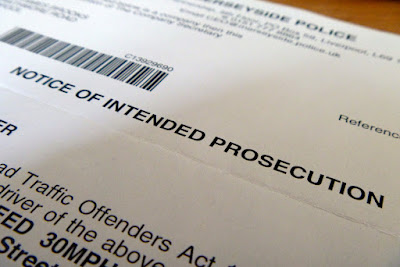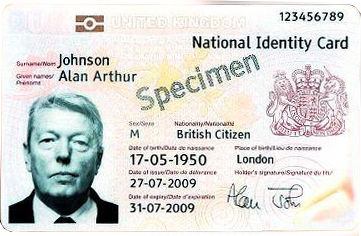Section 172 notices
A short post on section 172 notices this afternoon. I tend to
focus on drink driving offences, although I do undertake any type of motoring
law case if asked, so section 172 notices pop up from time to time in my work.
If you don’t already know, section 172 of the Road Traffic
Act 1988 requires the registered keeper of a vehicle to identify the driver of
the vehicle when the police allege that the driver at the time was responsible
for an offence. If you’ve ever had a speeding ticket through the post then you
will probably have been sent one of these documents sent out with the Notice of Intended Prosecution. Failing to provide
the information is an offence in itself that carried a fine and six penalty
points. There are technical legal defences but the most common defence I’ve
seen is people giving evidence that they did return the form but it got lost
somewhere along the line.
In general, when a person gives evidence that they posted the
section 172 notice having completed it properly the court tends to believe them
and finds them not guilty. A very common variation on the theme is where the
defendant says that he or she completed the form but gave it to somebody else
to post or put it in their outgoing post at work. If you hand it to somebody
else to post then you can call that person to prove that they did post it. If
you put it in the outgoing post box at work then you usually only have your own
word to rely on; however, in my experience that is good enough.
I can understand why courts have accepted that putting the
section 172 notice in the outgoing post is sufficient since if that is how you
generally post your letters and your letters typically arrive then you can have
a high expectation that the section 172 notice will also arrive safely.
However, the Queen’s Bench Division of the High Court (QBD) said last week that
this is not good enough to escape a conviction in a case called Phiri v Director of Public Prosecutions
(currently unreported).
Sir Ross Cranston sitting in the QBD held that section 172
must be interpreted so that it provides a practical, fair and enforceable
system for identifying the drivers of vehicles. Section 7 of the Interpretation
Act 1978 tells us that putting the completed section 172 notice in the post
yourself completes the requirement to give the information but putting it in
the outgoing post does not. Sir Ross decided that in relying on a third party
to post the section 172 notice Mr Phiri had not discharged the requirement to
provide the information.
On the face of it this is a bit of a nonsense because what
the court seems to be saying is that you should not rely on a third party to
get the completed section 172 notice from your hand to the post box; however,
you can rely on a third party (the Royal Mail) to get the notice from post box
to the hands of the police staff responsible for processing it. This is, of
course, the result of the Interpretation Act 1978 and so whether you agree with
Sir Ross’s decision or not it does now seem to be the law.
So, here’s some free legal advice. If you receive a section
172 notice take legal advice from a solicitor who specialises in motoring law
if you need it, complete the form and send it back yourself. It is probably
wise to retain a copy of the completed section 172 notice and to send it back
via recorded delivery – yes, if you were wondering, I have acted in cases where
the police claimed not to have received multiple correspondence from a
defendant only to have her produce copies of the documents and proof of posting
to win the case in court.
If you are summonsed to court for failing to complete a
section 172 notice then be aware that you could receive 6 penalty points and
that even where you have returned the notice a court could find a way to
declare you guilty anyway – so get a solicitor!



Comments
Post a Comment